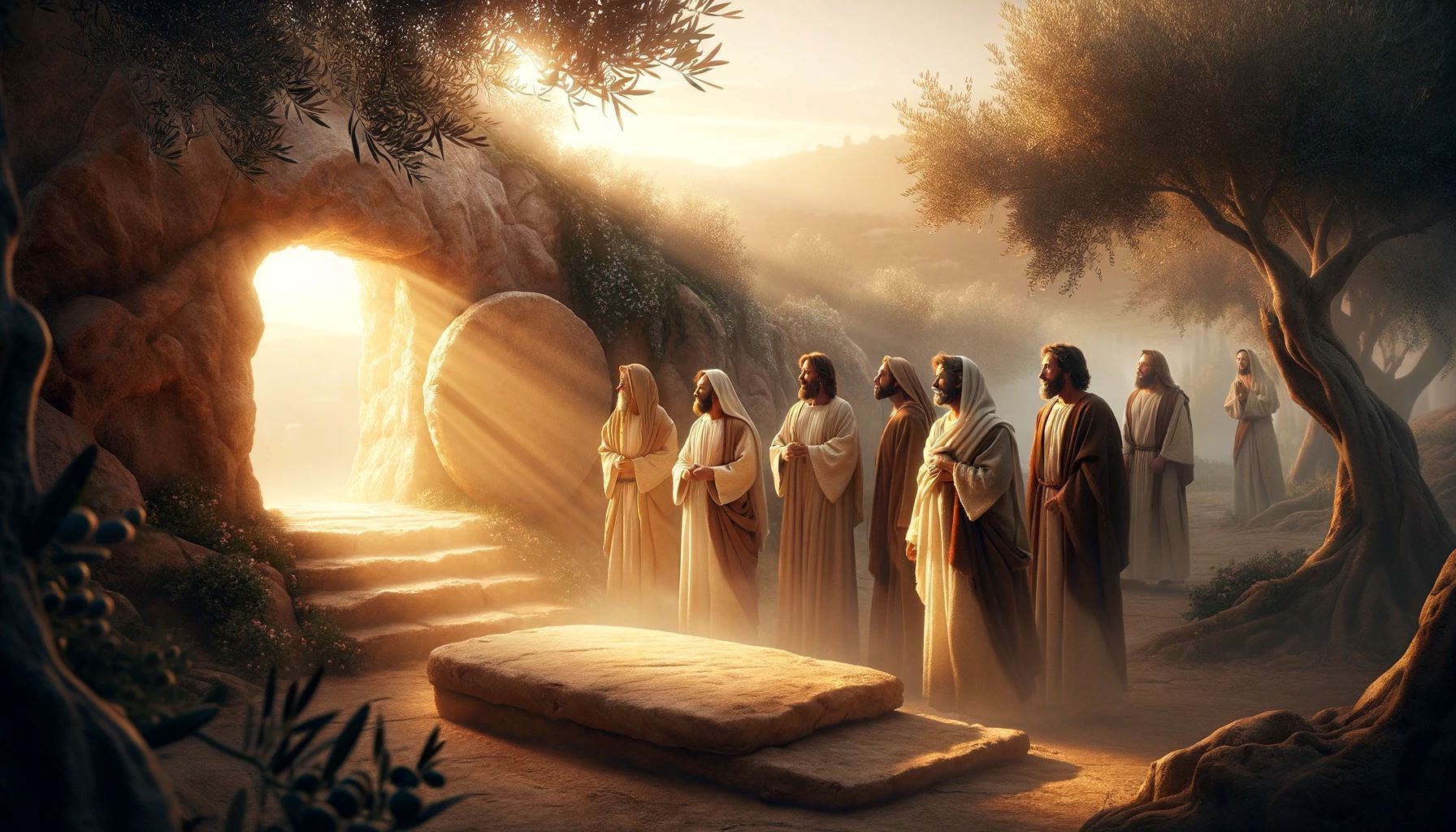
Resurrection is a concept that has intrigued humanity for centuries. From ancient myths to modern-day stories, the idea of coming back to life after death sparks curiosity and wonder. But what do we really know about it? Resurrection isn't just a religious or philosophical idea; it has roots in various cultures, literature, and even science fiction. Whether you're a history buff, a movie enthusiast, or someone with a keen interest in the supernatural, there's something here for everyone. Get ready to dive into 50 fascinating facts about Resurrection that will expand your understanding and maybe even challenge your beliefs.
Key Takeaways:
- Resurrection is a fascinating concept found in many religions and mythologies, involving the return to life of a person who has died. It has inspired countless stories, beliefs, and traditions throughout history.
- While primarily a religious concept, resurrection has also sparked interest in the scientific community, literature, pop culture, and art. It continues to evolve in contemporary times, influenced by new ideas and discoveries.
What is Resurrection?
Resurrection is a concept found in many religions and mythologies. It involves the return to life of a person who has died. This idea has fascinated humanity for centuries, inspiring countless stories, beliefs, and traditions.
- Resurrection is derived from the Latin word "resurrectio," meaning "rising again."
- In Christianity, Jesus Christ's resurrection is celebrated on Easter Sunday.
- Ancient Egyptians believed in resurrection, as seen in their mummification practices.
- Hinduism includes the concept of reincarnation, which is a form of resurrection.
- Norse mythology features the resurrection of Balder, a beloved god.
Resurrection in Christianity
Christianity places a significant emphasis on resurrection, particularly the resurrection of Jesus Christ. This event is central to Christian faith and theology.
- Jesus Christ was crucified and buried, then resurrected on the third day.
- Easter is the most important Christian holiday, celebrating Jesus' resurrection.
- The New Testament contains multiple accounts of Jesus' resurrection.
- The Apostles' Creed includes a statement of belief in the resurrection of the dead.
- Baptism symbolizes death and resurrection in Christian practice.
Resurrection in Other Religions
Resurrection is not exclusive to Christianity. Many other religions have their own interpretations and beliefs about life after death.
- Islam teaches that all humans will be resurrected on the Day of Judgment.
- Zoroastrianism includes a belief in the resurrection of the dead at the end of time.
- Judaism has varied beliefs about resurrection, with some sects emphasizing it more than others.
- Sikhism believes in the cycle of birth, death, and rebirth, similar to reincarnation.
- Buddhism focuses on rebirth rather than resurrection, with the ultimate goal of achieving Nirvana.
Scientific Perspectives on Resurrection
While resurrection is primarily a religious concept, it has also sparked interest in the scientific community.
- Cryonics is the practice of freezing bodies with the hope of future resurrection.
- Cloning raises questions about the possibility of resurrecting individuals.
- Stem cell research explores the potential for regenerating damaged tissues, hinting at a form of resurrection.
- Artificial intelligence and digital consciousness could one day offer a type of resurrection.
- Near-death experiences have been studied for insights into life after death.
Resurrection in Literature and Pop Culture
Resurrection has been a popular theme in literature, movies, and television, capturing the imagination of audiences worldwide.
- Frankenstein by Mary Shelley explores the idea of resurrecting the dead through science.
- Harry Potter features the resurrection stone, a magical object that can bring back the dead.
- The Matrix trilogy includes themes of resurrection and rebirth.
- Game of Thrones has multiple characters who are resurrected, including Jon Snow.
- The Walking Dead revolves around the concept of zombies, a form of resurrection.
Historical Beliefs and Practices
Throughout history, various cultures have had unique beliefs and practices related to resurrection.
- Ancient Greeks believed in the resurrection of heroes and demigods.
- The Aztecs had rituals to honor the dead, believing in their eventual return.
- Celtic mythology includes tales of warriors being resurrected to fight again.
- The Mayans believed in a cyclical view of life and death, with resurrection playing a key role.
- Shintoism in Japan includes beliefs in spirits returning to the physical world.
Modern Interpretations and Beliefs
In contemporary times, the concept of resurrection continues to evolve, influenced by new ideas and discoveries.
- Transhumanism explores the possibility of extending life indefinitely, akin to resurrection.
- Virtual reality offers a way to "resurrect" experiences and memories.
- Medical advancements have made it possible to revive individuals who were clinically dead.
- Philosophical debates continue about the nature of consciousness and resurrection.
- Cultural shifts have led to new interpretations of ancient resurrection myths.
Resurrection in Art and Music
Artists and musicians have long been inspired by the theme of resurrection, creating works that explore its many facets.
- Michelangelo's "The Last Judgment" depicts the resurrection of the dead.
- Handel's "Messiah" includes a powerful section on the resurrection of Christ.
- Salvador Dalí created surrealist works exploring themes of life, death, and resurrection.
- Gustav Klimt's "The Tree of Life" symbolizes resurrection and renewal.
- Modern music often includes themes of resurrection, rebirth, and renewal.
Resurrection in Folklore and Mythology
Folklore and mythology from around the world are rich with stories of resurrection, each offering unique perspectives.
- The Phoenix is a mythical bird that resurrects from its ashes.
- Osiris in Egyptian mythology was resurrected by his wife, Isis.
- Persephone in Greek mythology returns from the underworld each spring, symbolizing resurrection.
- The White Buffalo Calf Woman in Native American legend brings renewal and resurrection.
- The Hindu god Vishnu is often depicted as a preserver, involved in cycles of death and resurrection.
Resurrection in Philosophy
Philosophers have long pondered the implications and possibilities of resurrection, contributing to ongoing debates.
- Plato wrote about the immortality of the soul, hinting at resurrection.
- Descartes explored the nature of existence and the possibility of life after death.
- Nietzsche's concept of eternal recurrence touches on themes of resurrection and rebirth.
- Kant discussed the moral implications of resurrection in his works.
- Modern philosophers continue to explore the ethical and existential questions surrounding resurrection.
Final Thoughts on Resurrection
Resurrection isn't just a concept from ancient texts; it's a theme that resonates across cultures and religions. From Christianity's belief in Jesus rising from the dead to Hinduism's cycle of rebirth, the idea of coming back to life fascinates many. Even in pop culture, movies and books explore resurrection, showing our deep curiosity about life after death. Whether viewed as a spiritual event or a scientific possibility, resurrection challenges our understanding of life and mortality. It pushes us to think about what happens after we die and how we live our lives now. So, next time you come across a story of resurrection, remember it's more than just a tale; it's a reflection of our hopes, fears, and endless quest for meaning.
Frequently Asked Questions
Was this page helpful?
Our commitment to delivering trustworthy and engaging content is at the heart of what we do. Each fact on our site is contributed by real users like you, bringing a wealth of diverse insights and information. To ensure the highest standards of accuracy and reliability, our dedicated editors meticulously review each submission. This process guarantees that the facts we share are not only fascinating but also credible. Trust in our commitment to quality and authenticity as you explore and learn with us.


